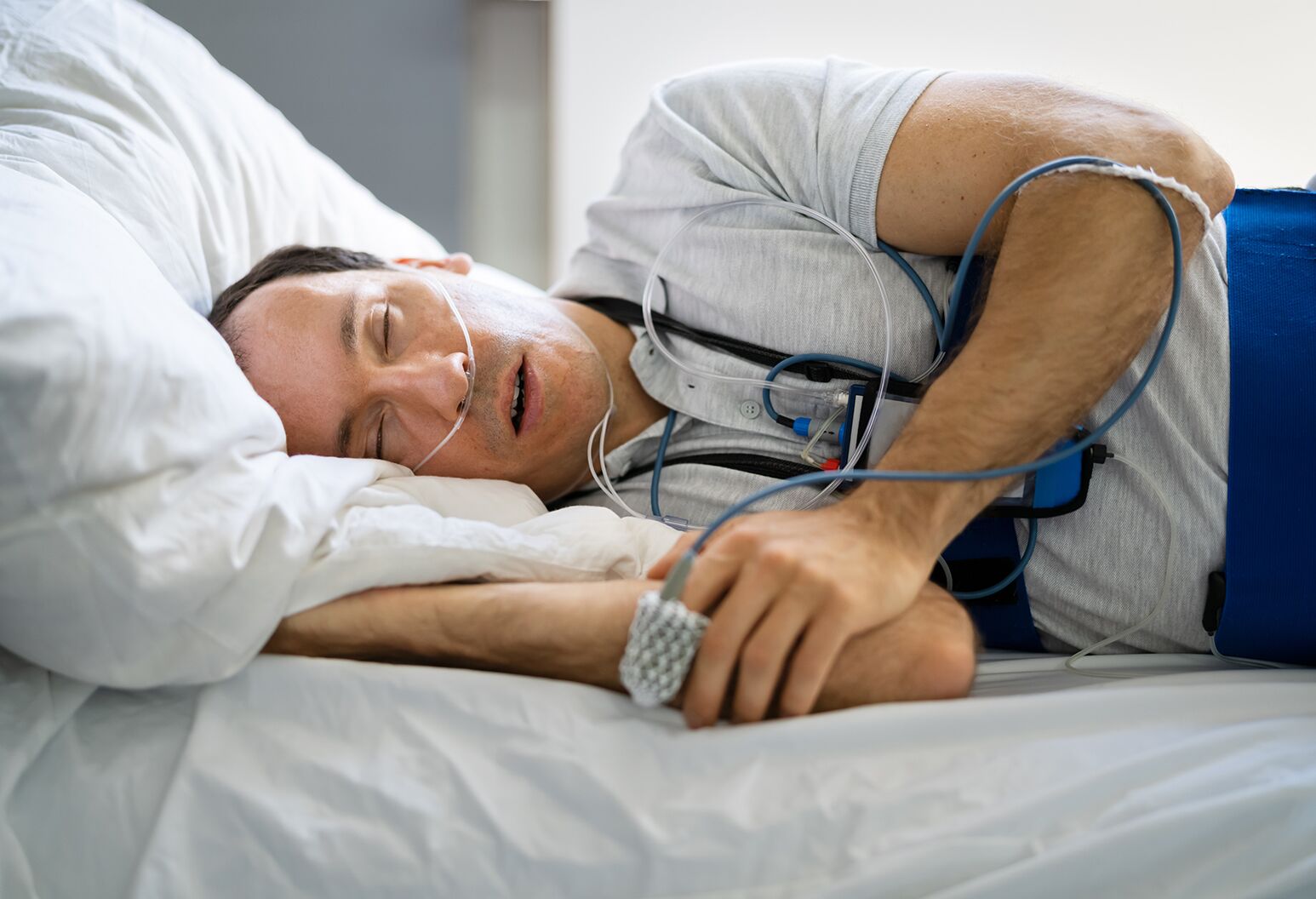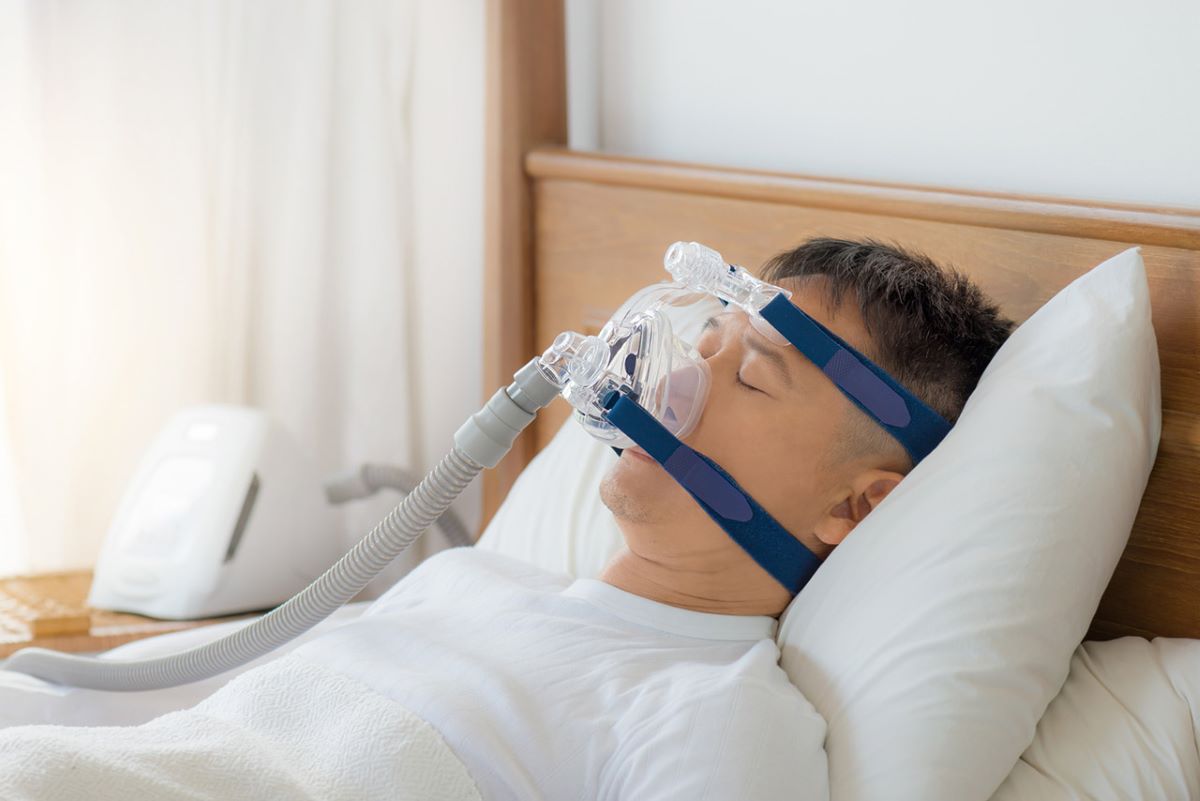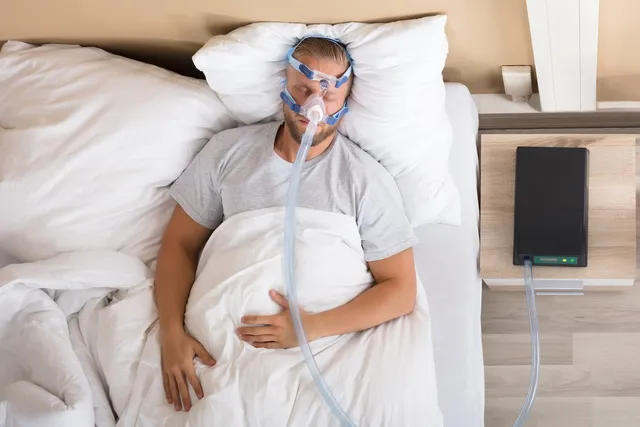Sleep is a fundamental aspect of human health, yet millions of people suffer from sleep disorders that can disrupt their lives and well-being. Understanding these disorders and how sleep studies can aid in diagnosis is essential for achieving restful nights and improved health. This comprehensive guide delves into the world of sleep disorders, the significance of sleep studies, and the path to effective treatment.
Understanding Sleep Disorders
Sleep disorders encompass a range of conditions that affect the sleep patterns of individuals, leading to various health issues. These disorders can impact not just sleep quality but also overall physical and mental health. The importance of sleep cannot be overstated, as it plays a critical role in the body’s ability to recover, repair, and rejuvenate. Disruptions in sleep can lead to a cascade of negative effects, making it essential to recognize and address these disorders promptly.
In conclusion, understanding sleep disorders and the pivotal role sleep study play in diagnosing them is vital for those struggling with sleep issues. The insights gained from a sleep study not only aid in diagnosis but empower patients to pursue effective treatments. By combining medical advice with lifestyle changes, individuals can improve their sleep quality, leading to enhanced overall health and well-being.
Common Types of Sleep Disorders
There are several types of sleep disorders, and they often present with various symptoms. Each disorder has its unique characteristics and underlying causes, which can range from lifestyle factors to genetic predispositions.
- Insomnia: Characterized by difficulty falling or staying asleep, insomnia can be short-term or chronic. It may be triggered by stress, anxiety, or environmental factors such as noise or light.
- Sleep Apnea: A serious disorder where breathing stops and restarts during sleep, sleep apnea can lead to significant health complications if left untreated. Individuals with this condition often experience loud snoring and may wake up gasping for air, which can disrupt their sleep cycle.
- Restless Legs Syndrome (RLS): This condition causes an uncontrollable urge to move the legs, often accompanied by uncomfortable sensations. RLS can make it difficult for individuals to relax and fall asleep, leading to a vicious cycle of fatigue and irritability.
- Narcolepsy: A neurological disorder characterized by excessive daytime sleepiness and sudden sleep attacks. People with narcolepsy may experience cataplexy, a sudden loss of muscle tone triggered by strong emotions, which can be both embarrassing and dangerous.
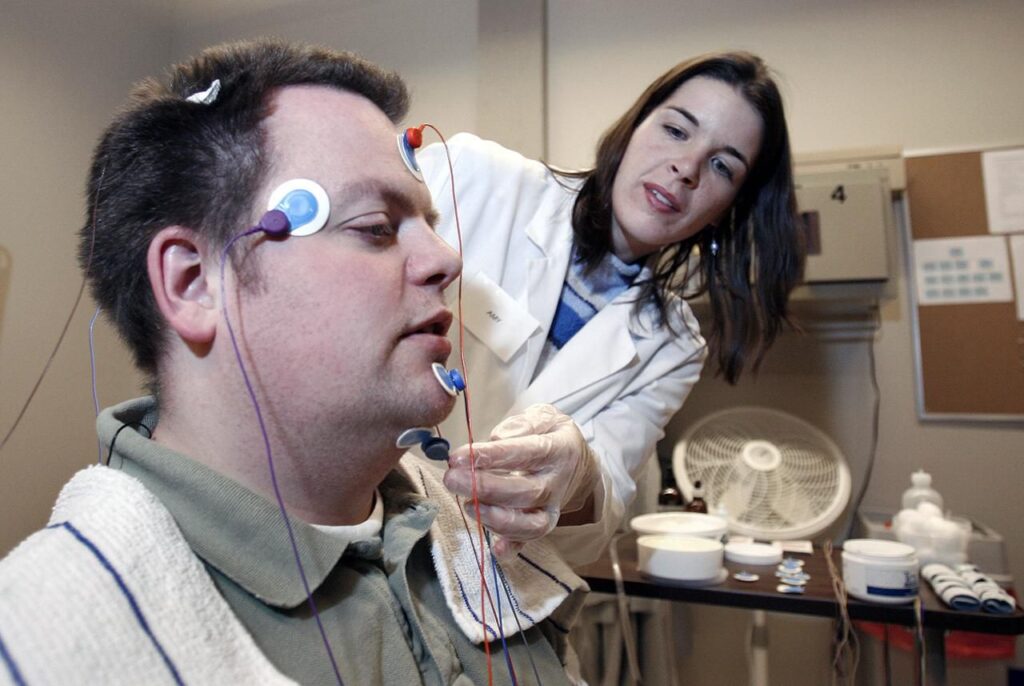
Symptoms and Impact of Sleep Disorders
The symptoms of sleep disorders can vary widely but often include chronic fatigue, mood swings, irritability, and reduced cognitive function. These issues can significantly affect a person’s quality of life, leading to poor performance at work or school, strained relationships, and even more severe health issues over time. Furthermore, the lack of restorative sleep can impair decision-making abilities and increase the risk of accidents, both at home and in the workplace.
Failure to address sleep disorders can also increase the risk of chronic conditions such as obesity, diabetes, and heart disease. Research has shown that sleep deprivation can disrupt hormonal balance, leading to increased appetite and cravings for unhealthy foods. Therefore, understanding and seeking help for these disorders is crucial. Early intervention can not only improve sleep quality but also enhance overall health and well-being, paving the way for a more fulfilling life. Additionally, lifestyle changes such as regular exercise, a balanced diet, and mindfulness practices can significantly contribute to better sleep hygiene and management of sleep disorders.
The Importance of Sleep Studies
Sleep studies, also known as polysomnography, are crucial in diagnosing sleep disorders. They provide valuable insights into the sleep pattern and physiological changes a person experiences during sleep. Understanding these patterns is essential not only for addressing immediate sleep issues but also for promoting overall health and well-being. Poor sleep can have cascading effects on various bodily systems, making the role of sleep studies even more significant in today’s fast-paced world.
The Role of Sleep Studies in Diagnosis
Sleep studies are often recommended when a healthcare provider suspects a sleep disorder based on a patient’s symptoms or sleep history. These studies monitor various parameters during sleep, including brain waves, oxygen levels, heart rate, and breathing patterns. The comprehensive data collected during these studies allows for a nuanced understanding of an individual’s sleep architecture, which can reveal disruptions that may not be apparent through self-reported sleep logs or questionnaires.
By analyzing this data, doctors can identify abnormal sleep patterns that point to specific sleep disorders, making it easier to formulate an effective treatment plan. For instance, a sleep study can help differentiate between insomnia and sleep apnea, both of which require different therapeutic approaches. Additionally, the information gathered can also shed light on how lifestyle factors, such as stress and diet, may be influencing sleep quality, providing a more holistic view of the patient’s health. Read more about therapeutic on https://www.tcesnationalonlineschool.org.uk/our-online-school/what-is-therapeutic-education
Benefits of Conducting a Sleep Study
The benefits of conducting a sleep study extend beyond just diagnosis. They can also:
- Identify Underlying Conditions: Issues such as sleep apnea can be linked to other health problems, including cardiovascular issues and diabetes, highlighting the interconnected nature of sleep and overall health.
- Tailor Treatment Plans: Doctors can create individualized treatment strategies based on accurate data, ensuring that interventions are specifically suited to the patient’s unique sleep profile.
- Monitor Treatment Efficacy: Follow-up sleep studies can track the success of treatments applied, allowing for adjustments to be made as necessary to optimize outcomes.
Furthermore, sleep studies can also serve an educational purpose, helping patients understand the importance of sleep hygiene and lifestyle modifications that can enhance sleep quality. By engaging patients in their own care, healthcare providers can empower them to take proactive steps towards better sleep health. This collaborative approach not only improves adherence to treatment plans but also fosters a deeper understanding of the critical role sleep plays in maintaining overall health and well-being.
The Process of a Sleep Study
For many, the idea of undergoing a sleep study can be daunting. However, understanding the process can make it less intimidating and help patients prepare effectively.
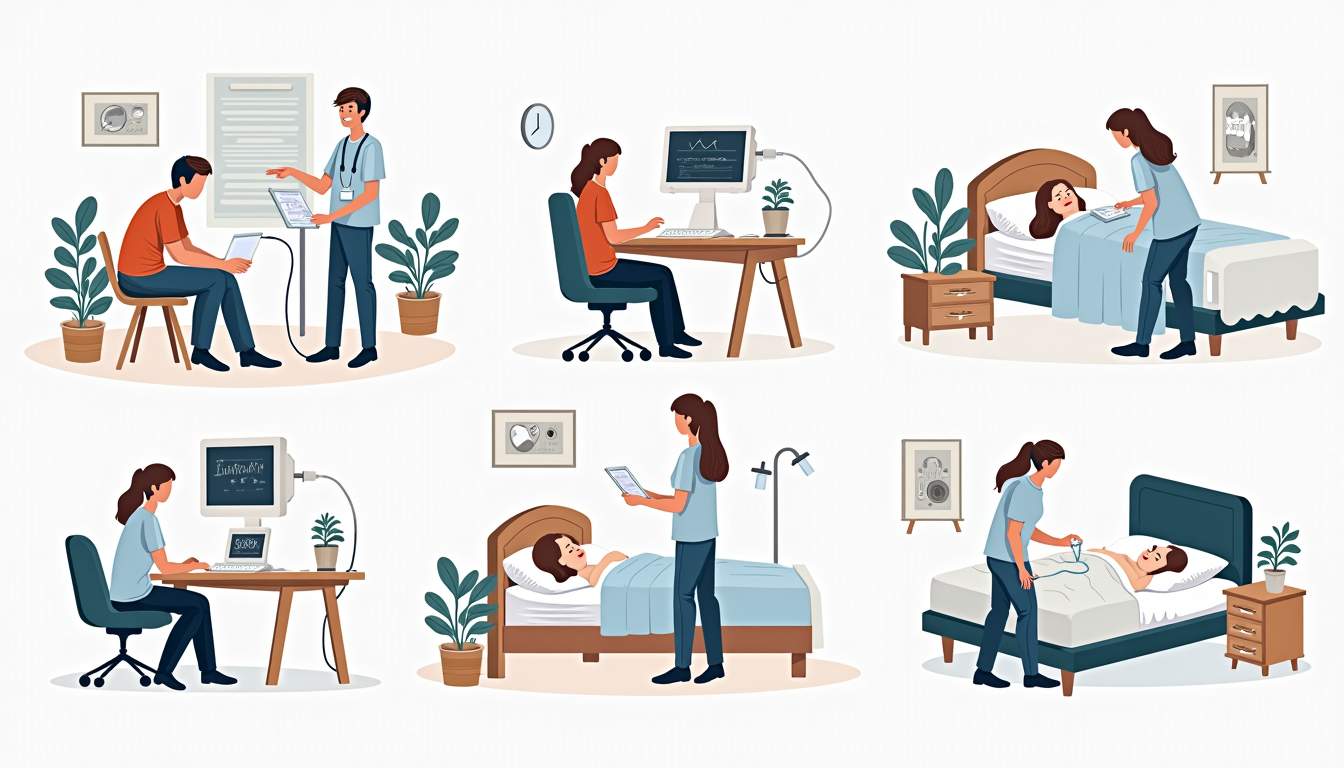
Preparing for a Sleep Study
Preparation for a sleep study usually involves several steps. Patients may be advised to avoid caffeine and alcohol before the study and to follow their typical sleep schedule. This is crucial, as these substances can significantly affect sleep patterns and the overall quality of the study.
They should also dress comfortably and bring any medications they usually take at bedtime. A sleep technician will explain the procedures and ensure that the patient is comfortable throughout the night. It may also be beneficial for patients to familiarize themselves with the facility, as many clinics offer virtual tours or informational videos that can ease anxiety. Knowing what to expect can help patients feel more at ease and ready for the experience.
What Happens During a Sleep Study
During the sleep study, patients are monitored while they sleep, often in a sleep clinic. Multiple sensors will be attached to the patient’s skin to record various physiological data. This may include:
- Electroencephalogram (EEG) to monitor brain activity
- Electrocardiogram (ECG) to observe heart activity
- Oximetry to check oxygen levels in the blood
The experience is designed to be as natural as possible so that patients can sleep as they normally would. The data collected will later be analyzed by sleep specialists. In addition to the physiological monitoring, some studies may also include video recording to observe any physical movements during sleep, such as snoring or periodic limb movements. This comprehensive approach allows for a thorough assessment of sleep disorders, providing valuable insights into conditions like sleep apnea, restless leg syndrome, and insomnia. Click here to find more about syndrome.
Throughout the night, the sleep technician will be present to ensure everything runs smoothly, ready to assist if any issues arise. Patients may find comfort in knowing that they are not alone during the study, as the technician is trained to handle various situations and can provide reassurance. The environment is typically quiet and dark, mimicking a home setting to promote natural sleep patterns, which is essential for obtaining accurate results.
Interpreting Sleep Study Results
Once a sleep study is completed, the results are crucial for diagnosing sleep disorders. Understanding these results helps clarify what has been observed and the next steps for the patient.
Understanding Sleep Study Data
A sleep study generates extensive data that specialists analyze. Key metrics include:
- Sleep Stages: Examination of the various stages of sleep to determine any disruptions.
- Apnea Events: The frequency and duration of breathing interruptions help diagnose sleep apnea.
- Movement Patterns: Assessment of movements during sleep that may indicate disorders like RLS.
Proper interpretation of this data is essential for accurate diagnosis and effective treatment planning.
How Sleep Study Results Lead to Diagnosis
The findings from a sleep study will guide healthcare providers in making a formal diagnosis. The data collected will clarify whether a sleep disorder is present and, if so, the type and severity.
This objective data offers a clearer view compared to subjective reports from patients alone, making diagnosis more reliable and leading to targeted treatment options.
Treatment Options Post-Diagnosis
After a diagnosis is made, treatment options are explored based on the specific sleep disorder identified. Effective management can significantly improve quality of life.
Medical Treatments for Sleep Disorders
Medical treatments can vary widely based on the condition diagnosed. Common treatments include:
- Cognitive Behavioral Therapy for Insomnia (CBT-I): This therapy is effective for treating insomnia-based disorders.
- Continuous Positive Airway Pressure (CPAP): Often prescribed for sleep apnea, this device keeps airways open during sleep.
- Medications: Some patients may benefit from sleep aids or medications prescribed by their healthcare provider.
Lifestyle Changes to Improve Sleep Quality
In addition to medical interventions, lifestyle changes can have a significant impact on sleep quality. Recommendations may include:
- Establishing a regular sleep schedule
- Creating a calming bedtime routine
- Avoiding electronic devices before bed
These modifications can promote better sleep hygiene and help mitigate the symptoms of various sleep disorders, leading to more restful nights.

